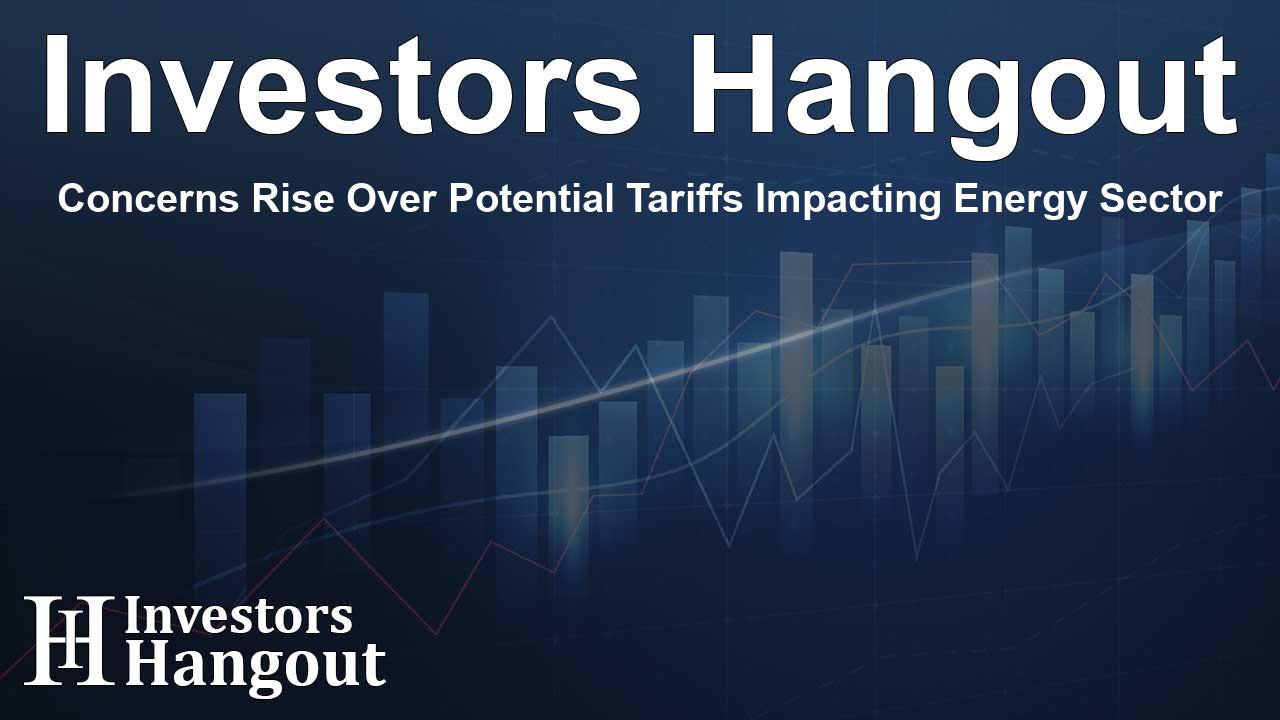Concerns Rise Over Potential Tariffs Impacting Energy Sector

Concerns Over Potential Tariffs and Energy Security
Amidst growing discussions around trade policies, American oil and gas lobbying groups have voiced notable concerns regarding President-elect Donald Trump's proposal of tariffs targeting Canada and Mexico. These tariffs, set at a substantial 25%, threaten to reshape energy agreements between the neighboring countries.
Understanding the Threat of Tariffs
Trump's tariffs are proposed to be enacted unless the two nations can effectively address issues surrounding drug trafficking and immigration. Such a move could considerably disrupt trade relationships with two of the United States' main oil trading partners, leading to economic repercussions that ripple through various sectors.
Impact on Consumers and Industry
The implications of these proposed tariffs extend far beyond government policies. Leaders from the drilling and refining industries have expressed their worries that these across-the-board tariffs could inflate the costs of imported goods and limit the supply of essential oil feedstocks. A representative from the American Fuel and Petrochemical Manufacturers (AFPM) emphasized the possibilities of increased costs for consumers and jeopardizing America's position as a leading producer of liquid fuels.
The Role of Key Trade Partners
Canada, as the United States' foremost supplier of oil, plays a critical role in maintaining energy stability. In the previous year, Canada shipped nearly 4 million barrels of crude oil to the U.S. daily. Such a volume signifies the importance of uninterrupted energy trade in fostering North American energy security.
Advocacy from Key Groups
The American Petroleum Institute (API) has firmly stated that safeguarding the flow of energy products is essential for both national security and consumer interests. API spokesperson Scott Lauermann reiterated the significance of maintaining open trade channels for energy as a means of ensuring not only economic stability but also security for U.S. consumers.
A Call for Caution
The AFPM continues to advocate for policies that prioritize the nation's energy advantage over disruptive tariff measures. Their stance centers on the belief that such tariffs could hinder the U.S.'s ability to remain competitive in the global energy market.
Frequently Asked Questions
What are the proposed tariffs related to?
The proposed tariffs are a 25% tax on imports from Canada and Mexico aimed at addressing drug trafficking and immigration issues.
How could tariffs affect American consumers?
Tariffs could inflate import costs, leading to higher prices for consumers while potentially reducing access to energy products.
What has the American Petroleum Institute said about the tariffs?
The API has highlighted the importance of maintaining free energy trade across borders for national energy security and consumer welfare.
Why is Canadian oil supply significant to the U.S.?
Canada is the largest supplier of oil to the U.S., with millions of barrels of crude shipped daily, which is critical for energy independence and stability.
What is the stance of the American Fuel and Petrochemical Manufacturers?
AFPM advocates for caution against policies that could disrupt the U.S.'s competitive edge in energy production and has urged policymakers to avoid harmful tariffs.
About Investors Hangout
Investors Hangout is a leading online stock forum for financial discussion and learning, offering a wide range of free tools and resources. It draws in traders of all levels, who exchange market knowledge, investigate trading tactics, and keep an eye on industry developments in real time. Featuring financial articles, stock message boards, quotes, charts, company profiles, and live news updates. Through cooperative learning and a wealth of informational resources, it helps users from novices creating their first portfolios to experts honing their techniques. Join Investors Hangout today: https://investorshangout.com/
Disclaimer: The content of this article is solely for general informational purposes only; it does not represent legal, financial, or investment advice. Investors Hangout does not offer financial advice; the author is not a licensed financial advisor. Consult a qualified advisor before making any financial or investment decisions based on this article. The author's interpretation of publicly available data shapes the opinions presented here; as a result, they should not be taken as advice to purchase, sell, or hold any securities mentioned or any other investments. The author does not guarantee the accuracy, completeness, or timeliness of any material, providing it "as is." Information and market conditions may change; past performance is not indicative of future outcomes. If any of the material offered here is inaccurate, please contact us for corrections.